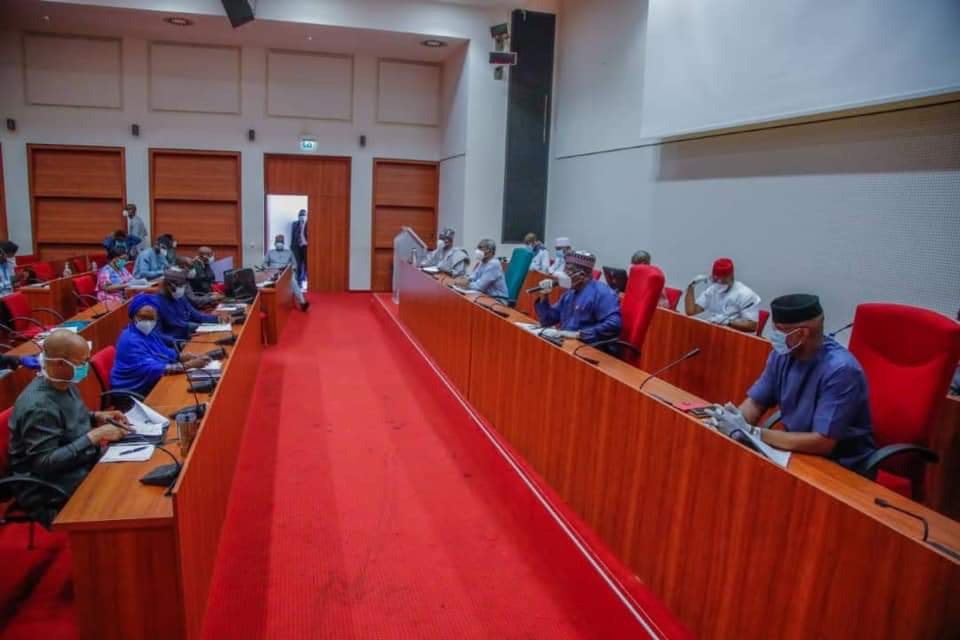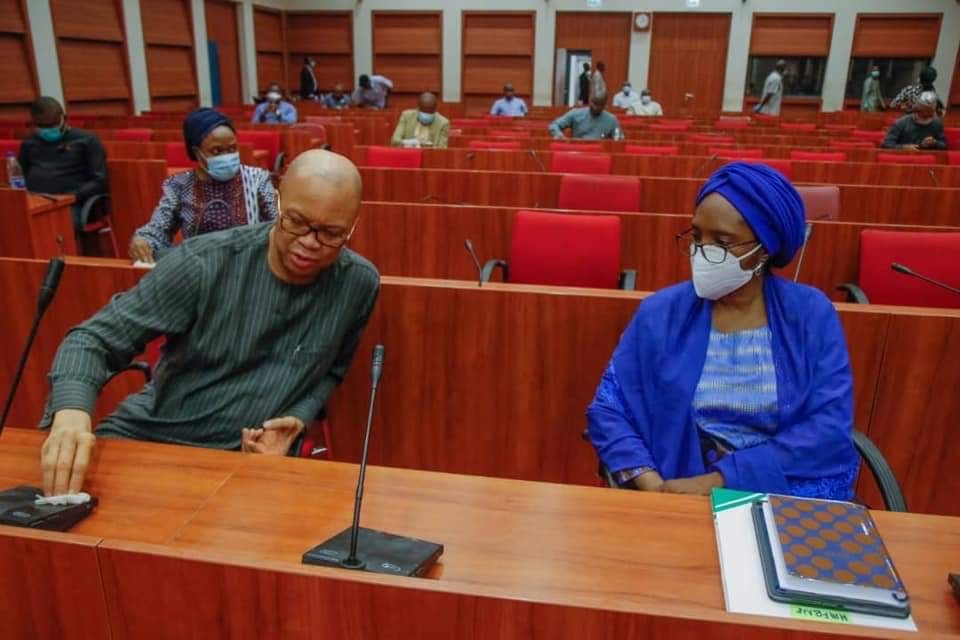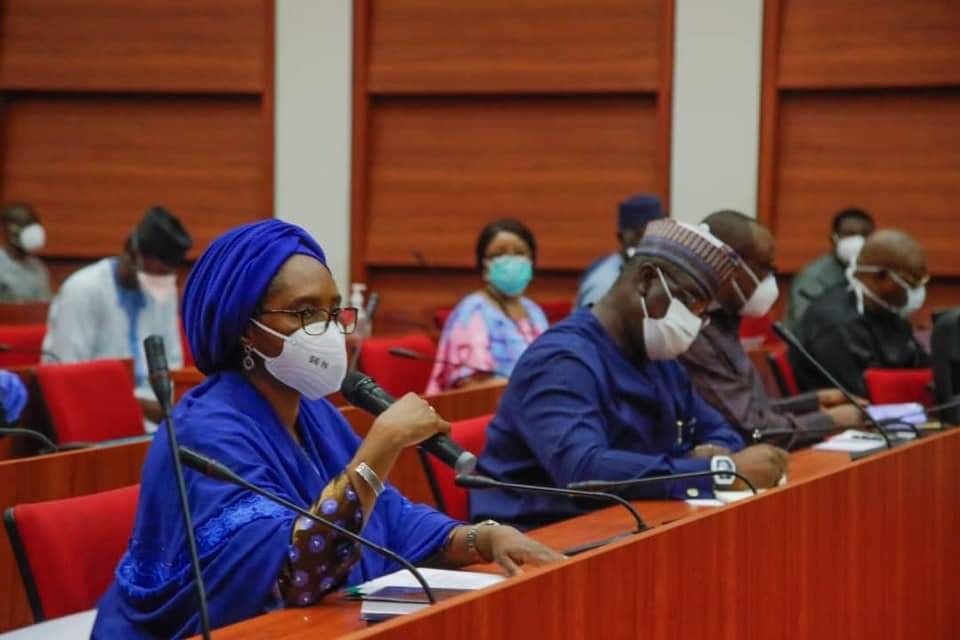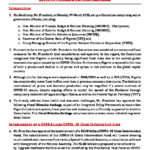With the manner in which coronavirus (COVID-19) ravages most parts of the world, substantial targeted policies are needed to support the economy through the global pandemic, keeping intact the economic and financial relationships between different stakeholders: workers and businesses, lenders and borrowers, and suppliers and end-users for activity to find its footings, once the outbreak eases.

In a way, the federal government, through Nigeria Centre For Disease Control (NCDC), has been implementing numerous strategies and tailored programs in Nigeria to ensure that the adverse impact of the disease on the country is minimised.
President Muhammadu Buhari has just approved N83 billion which is part of the funds meant to fight the globally threatened pandemic. This is in addition to N10 billion earlier released to support Lagos State and N5 billion also released then to the Nigeria Centre for Disease Control (NCDC), all in the fight against the pandemic.
Furthermore, Mr. President has directed that Mrs. Zainab S. Ahmed, the Honourable Minister of Finance, Budget and National Planning, who chairs Special Presidential Committee on the review of the impact of the pandemic on the Nigerian economy, should have discussions with the National Assembly, to possibly see to the passing of a legislation for the release of the wholesome COVID-19 Intervention Fund.
Mr. President had actually ordered a two-week lockdown to help curtail expansion of the health crisis, and the consequences of which Ahmed said: “The consequences of the lockdown are the additional slowing down of the economy and we are to consider the measures that we need to take to mitigate the negative consequences of the slow trade and businesses.”
The goal is to prevent a temporary crisis from permanently harming Nigerians and businesses through job losses and bankruptcies. The human costs of the disease outbreak have, of course, risen at an alarming rate and the disease is spreading across different countries.
The economic impact is already visible in Nigeria with manufacturing and service sector activity declining dramatically daily. While the drop in manufacturing is comparable to the start of the global financial crisis of the past, the decline in services appears larger this time — reflecting the large impact of social distancing.
In order of priority, the first line of action for the country has clearly been to keep Nigerians as healthy and safe as possible. The country has frantically helped by spending more to sustain the economy, boost the health systems, through personal protective equipment, screening, diagnostic tests, and additional hospital beds.

Although there is no vaccine to stop the virus, the country has taken actions to sustain the already taken measures to limit its spread, like travel restrictions, temporary school closures, and quarantines. Such measures are also to buy valuable time to avoid overwhelming health systems.
In the same vein, African Ministers of Finance, among whom the Honourable Minister is very visible, held a second virtual meeting a few days ago, against the backdrop of rising COVID-19 cases in the continent. The meeting was hosted by Vera Songwe, Executive Secretary of the Economic Commission for Africa (ECA), and co-chaired by Ministers Tito Mboweni of South Africa and Ken Ofori-Atta of Ghana.
Countries shared their experiences and also discussed opportunities for mutual support. While acknowledging the commendable policy measures taken by governments, the ministers underscored that Africa’s economy is facing a deep and synchronised slow down and could take up to three years to turn the corner.
They stressed the need to take “all possible actions to slow down and bring the spread of COVID19 under control in the short term, but acknowledged that this is an uphill battle.
In a statement issued by the communications section of ECA, the ministers agreed on key issues: The immediate focus, according to them, must remain on the health and humanitarian front, because there is a need to continue the awareness raising, testing, social distancing. Many ministers joined the meetings with masks.
The ministers called for debt relief from bilateral, multilateral and commercial partners with the support of the multilateral and bilateral financial institutions such as the International Monetary Fund (IMF), The World Bank Group (WBG), The European Union (EU), to ensure that African countries get fiscal space required to deal with the COVID-19 crisis. The call for debt relief, it was emphasized, should be for all of Africa and should be undertaken in a coordinated and collaborative way.
They called for a special purpose vehicle to be created to deal with all sovereign debt obligations. They noted that substantial declines in revenue from commodity price drops, coupled with increasing costs of imports, is putting pressures on both inflation and the exchange rate.
Considering the need for longer period for debt relief, they posit that given that the global economy has entered a period of a synchronised slow down, with recovery only expected after about 24 to 36 months, development partners should consider debt relief and forbearance of interest payments over a two to three-year period for all African countries, low-income countries (LICs) and middle-income countries (MICs) alike.
The ministers acknowledged the importance of the private sector for job creation and for the recovery effort. They called on development finance institutions (DFIs) to support private sector in this difficult time. In addition, since Africa is a net importer of pharmaceutical products, enabling local continental production could serve to protect some jobs and guarantee supply of essential medicines during the crisis. Over 54 countries have banned exports of pharmaceutical products.
The ministers called for an end to these procedures and for joint protocols on border closures to allow for trade and humanitarian corridors, saying there is a need for liquidity facilities, refinancing and guarantee facilities to support the private sector.
They discussed the enormous losses being incurred in the airline and hospitality industry and called for the protection and preservation of the African airline, the logistics tourism industry, by advocating for a stay on interest, lease and debt payments. “This is an important job creating sector for millions of Africans and must be protected. They agreed to set up a meeting for countries affected by transport and tourism losses due to the pandemic, in order to better plan on policies to combat the losses.
Unanimously, the ministers welcomed the use of technology such as mobile phones to support awareness raising, identify communities in need and create accountability and governance mechanisms around the use of the stimulus. They asked ECA to work with the telecommunications companies to design a system to support the objectives.






